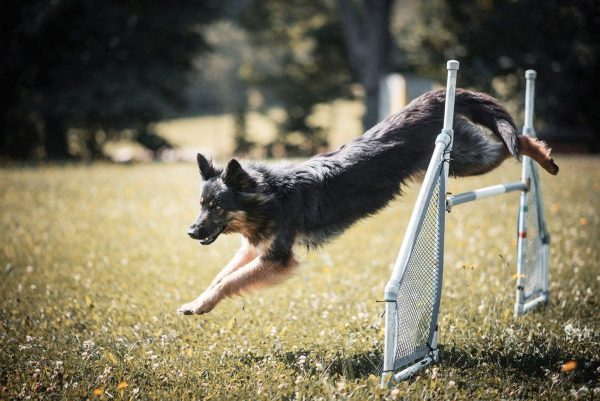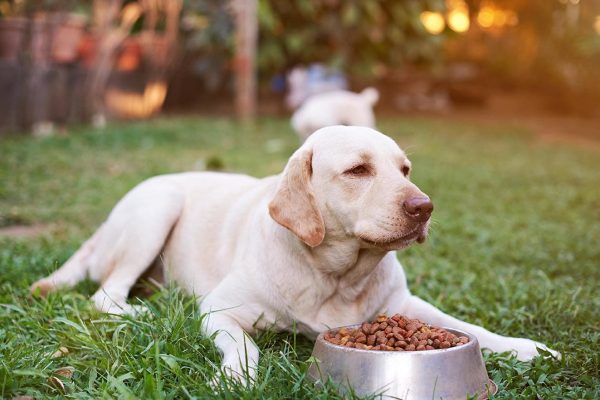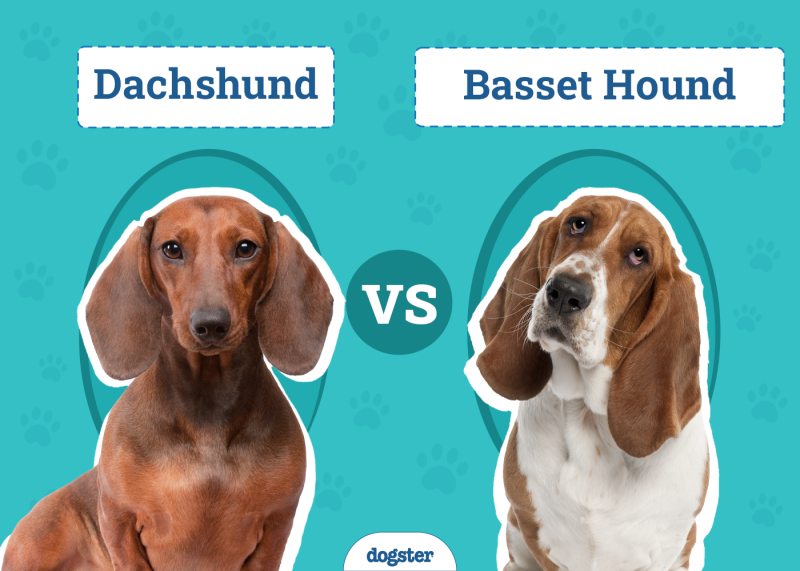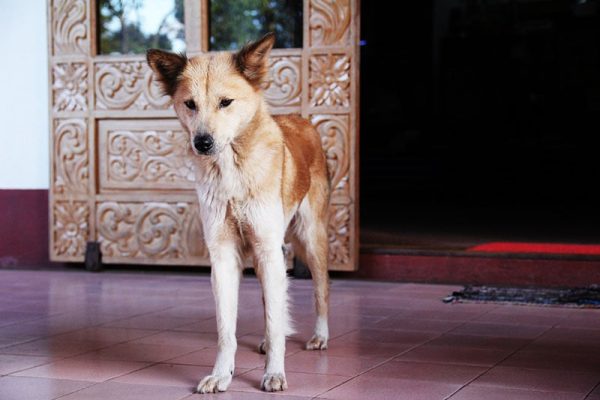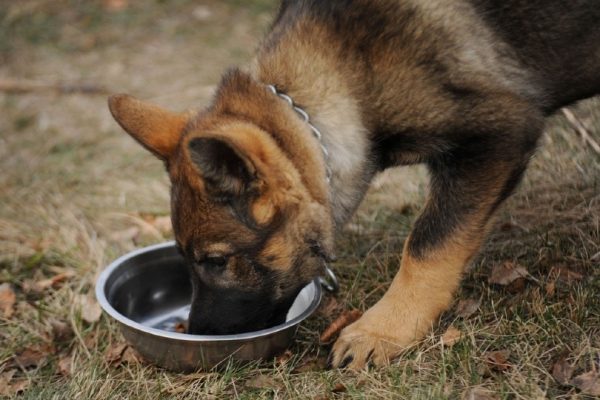Basset Hounds are one of the most adorable dog breeds around. With their long ears, sad eyes, and baying howls, it’s easy to see how they can wiggle their way into our hearts. Unfortunately, however, as with any pet, Basset Hounds do face certain health problems due to their breed. Let’s take a look at 11 of the most common of these health problems so you can better understand what your Basset Hound may face. This will help you watch for signs of issues and have a better understanding of what’s happening with your faithful companion.

The 11 Common Health Problems in Basset Hounds
1. Hip and Elbow Dysplasia
Hip dysplasia occurs when a dog’s hip joint is formed abnormally, making the ball and joint not fit together correctly. Elbow dysplasia stems from the elbow joint being abnormally formed. Both of these issues can cause difficulty walking and a lot of pain for a dog. In time, affected dogs develop arthritis in the abnormal joints. Usually, hip and elbow dysplasia is hereditary but nutrition and other environmental factors come into play.
- Limping
- Pain when walking
- Difficulty jumping
- Difficulties when lying down or getting back up

2. Glaucoma
Glaucoma, specifically Primary Open-Angle glaucoma, is a type of eye condition inherited by Basset Hounds. The genetic defect prevents fluid from draining from the eye at a normal rate. Since fluid is constantly produced in the eye, this leads to pressure build-up. Pups are born with the genetics for this disorder but only show signs in adulthood. Genetic testing is available to help breeders avoid passing on this disease.
- Pain
- Eye enlargement
- Tearing
- Redness
- Blindness
3. Mucopolysaccharidosis
Mucopolysaccharidosis is another inherited condition in Bassets. The disease causes the cell lysosomes to malfunction. These lysosomes are cell organs responsible for breaking down and clearing out waste products in the cell. With mucopolysaccharidosis, the waste products build up to the point that cells cannot function, and dogs become unwell. Only some dogs with this condition survive to adulthood, and about 1% of the Basset population carry the disease, which is why parents should be screened to avoid passing it on.
- Joint problems
- Heart disease
- Weakness
- Cataracts
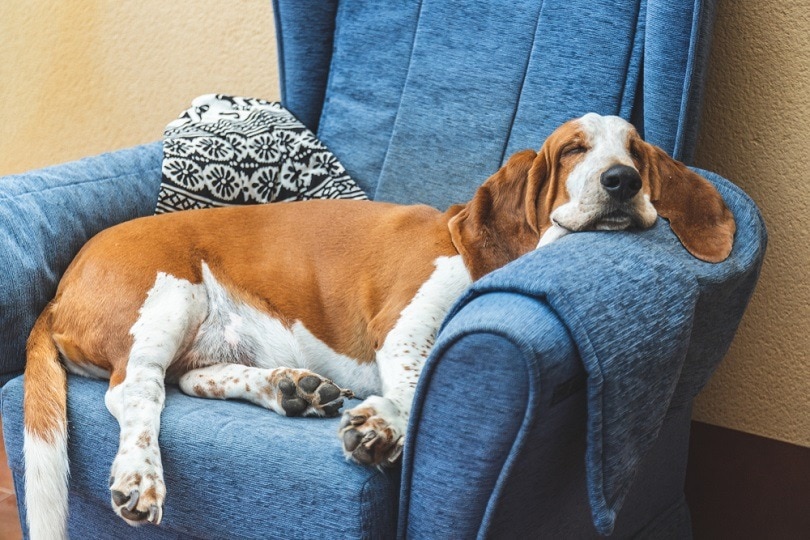
4. Thrombopathia
Thrombopathia is a bleeding disorder that affects Basset Hounds. When suffering from thrombopathia, Basset Hound’s platelets do not work to clot blood properly. This means small injuries or even bleeding gums can become a severe issue. Often, thrombopathia isn’t found until a trauma occurs or surgery is needed. However, it is considered one of the most dangerous issues a Basset Hound can suffer. Thrombopathia is also a genetic disease that can be tested for.
- Excessive and abnormal bleeding
- Bruising
- Hematomas
- Tarry feces from intestinal bleeding
- Signs related to internal bleeding
5. Wobbler Syndrome
This condition is a neurological disorder that combines chronic degenerative disorders that affect the neck and spinal cord in this region. Wobbler’s syndrome is suspected to have a genetic basis. It causes excessive compression to the spinal cord, which leads to signs of nerve dysfunction or even paralysis. It is named Wobbler Syndrome due to the wobbly gait it causes in dogs.
- Strange or wobbly gait
- Neck stiffness and pain
- Paralysis
- Abnormal reflexes
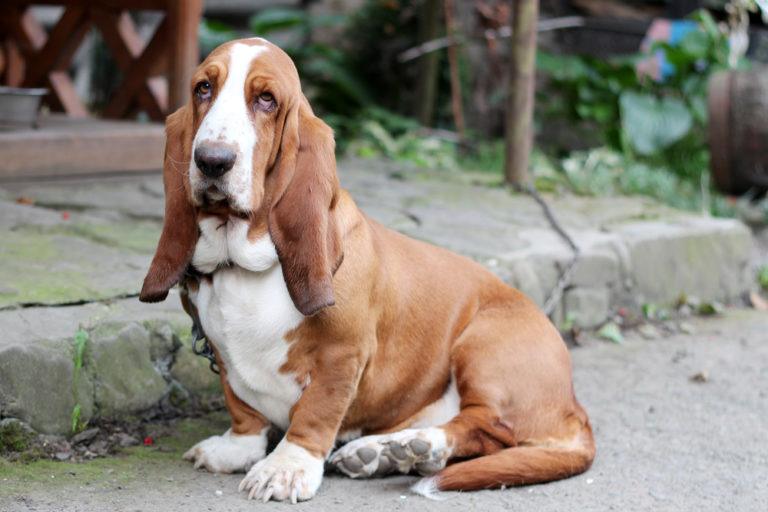
6. Ear Infections
Due to their long, floppy ears, the ear canals of Bassett hounds don’t get much airflow and can trap debris and moisture. This predisposes them to getting ear infections, especially if they have allergies that cause ear inflammation. Regular ear cleaning and treating infections promptly will help keep your Basset healthy.
- Smelly ears
- Inflamed ear canals
- Discharge
- Head shaking
- Ear scratching
7. Seborrhea
Seborrhea is an inherited disease in Basset Hounds that can affect the skin. This disorder causes the body to produce too much sebum, which is used to create a protective coat of oil for the skin. This excess leads to thick, flakey, dry, smelly skin. Seborrhea can also be a secondary symptom to other issues your Basset Hound may suffer from such as allergies, infections, poor diet, or hormonal imbalances.
- Scabs or crusts on the skin
- Oily skin
- Pungent odor
8. Intervertebral Disc Disease
Intervertebral disc disease, or IVDD, is one of the most common health issues in Basset Hounds. This is due to the breed’s shape. This spinal disorder is caused by the rupture or herniating of the cartilage discs found between the spine’s vertebrae. Compression on the spinal cord is the result. The discomfort and severity of signs suffered by a Basset Hound will be determined by how severe the compression is on the spinal cord. The location of the disc rupture will also affect the signs a dog shows.
- Back or neck pain
- Problems walking
- Lethargy
- Paralysis
- Incontinence

9. Gastric Torsion
Gastric torsion, also known as gastric dilatation-volvulus or bloat, is a dangerous, potentially deadly condition many deep-chested dog breeds, like the Basset Hound, are prone to experience. Bloat occurs when the stomach fills with food, fluid, or gas and then twists, causing even more expansion. Dogs with gastric torsion go into shock because the blood supply to organs is disrupted, and there is not enough blood returning to the heart. Untreated, it proves deadly within hours. One way you can help prevent this is by making sure your Basset eats slowly and offering two or three smaller meals a day rather than one large one.
- Abdominal pain
- Retching
- Bloated abdomen
- Panting
- Restlessless
10. Ectropion
Ectropion is when the eyelids fold outward, which is why some Bassets have droopy eyes. This increases a Basset Hound’s chances of eye infections and irritations as the eye is more exposed. Often, ectropion is caused by loose skin around a dog’s face.
- Sagging of the eyelid
- Discharge
- Redness
- Staining of the fur beneath the eye
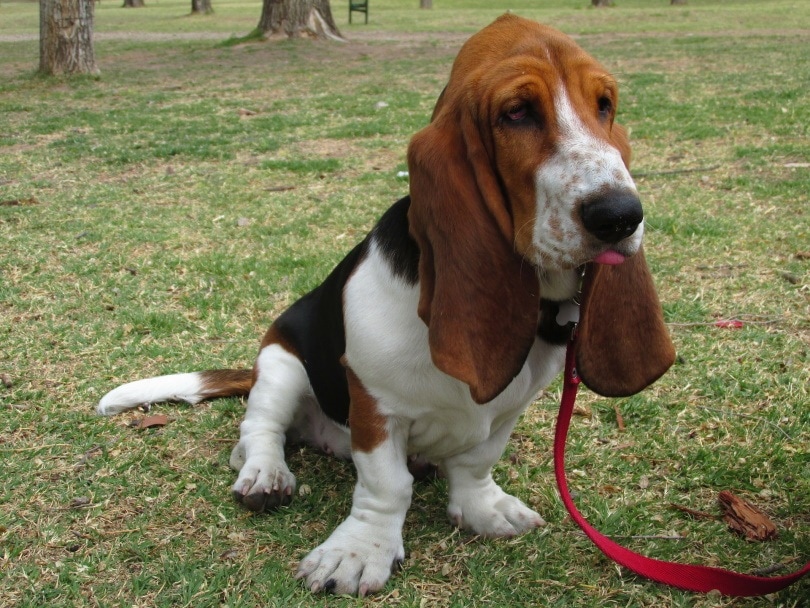
11. Obesity
Obesity in Basset Hounds is fairly common. Unfortunately, it can also be very dangerous. Basset Hounds love food, but too much weight on their frames can increase their risk of joint and spinal issues, as well as cancer and pancreatitis.
- Physical changes (weighted appearance)
- Decreased activity
To avoid having too much weight on a Basset Hound it is best to not overfeed them, follow the diet recommended by their veterinarian, and ensure they get the proper amount of exercise.
If you need to speak with a vet but can't get to one, head over to PangoVet. It's our online service where you can talk to a vet online and get the personalized advice you need for your pet — all at an affordable price!


Summary
While there are several health issues your Basset Hound could face throughout their lifetime, these are the most common ones. Some health issues are inherited. But to help keep your Basset Hound happy and healthy throughout their lives, take them for their annual veterinarian checkups. Routine health visits are the best way to keep track of your Basset’s health and any problems they may be developing. If you see any signs of issues, immediately contact your veterinarian for assistance.
Featured Image Credit: Billion Photos, Shutterstock



